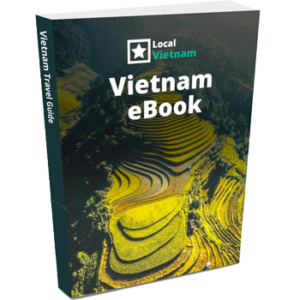Vietnamese culture is a tapestry of traditions that have been passed down through generations. From the vibrant festivals to the diverse cuisine, it is a treasure trove of unique customs and practices. In this guide, we will explore 15 traditions that offer a glimpse into the rich cultural heritage of Vietnam.
1. Vietnamese ethnic group cultures
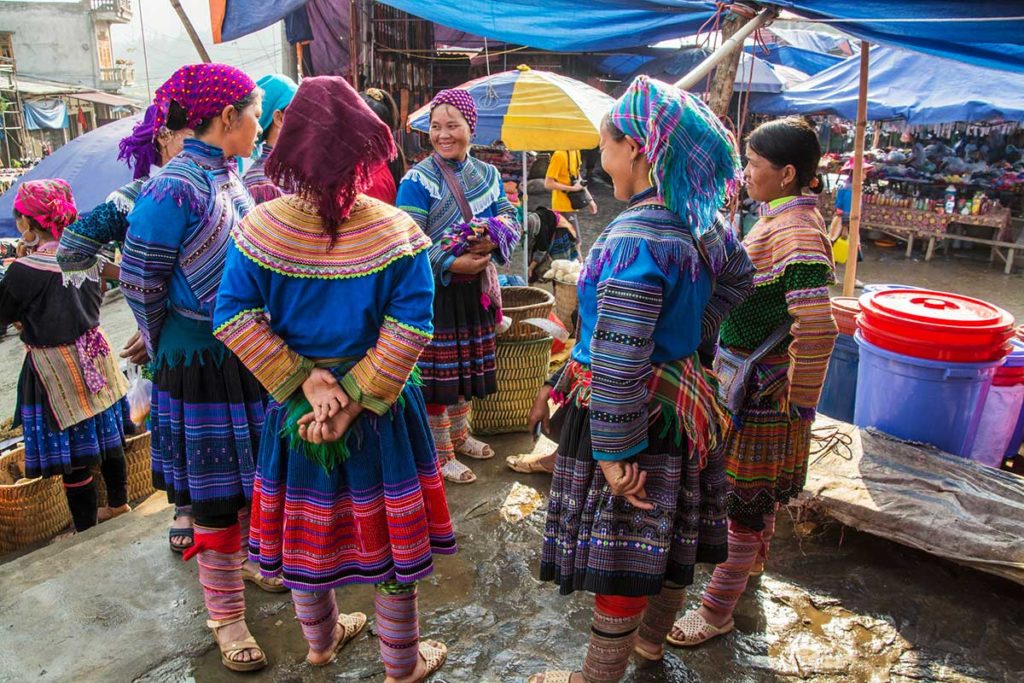
Vietnamese culture is exceptionally diverse with 54 ethnic groups, each with their own culture. Their traditions are forming an integral part of their identity. Each ethnic group has its own unique set of customs, rituals, and practices passed down through generations, reflecting their history, beliefs, and way of life. Some ethnic group even have their own distinct language and unique architectural styles for building houses.
2. Ancestor Worship
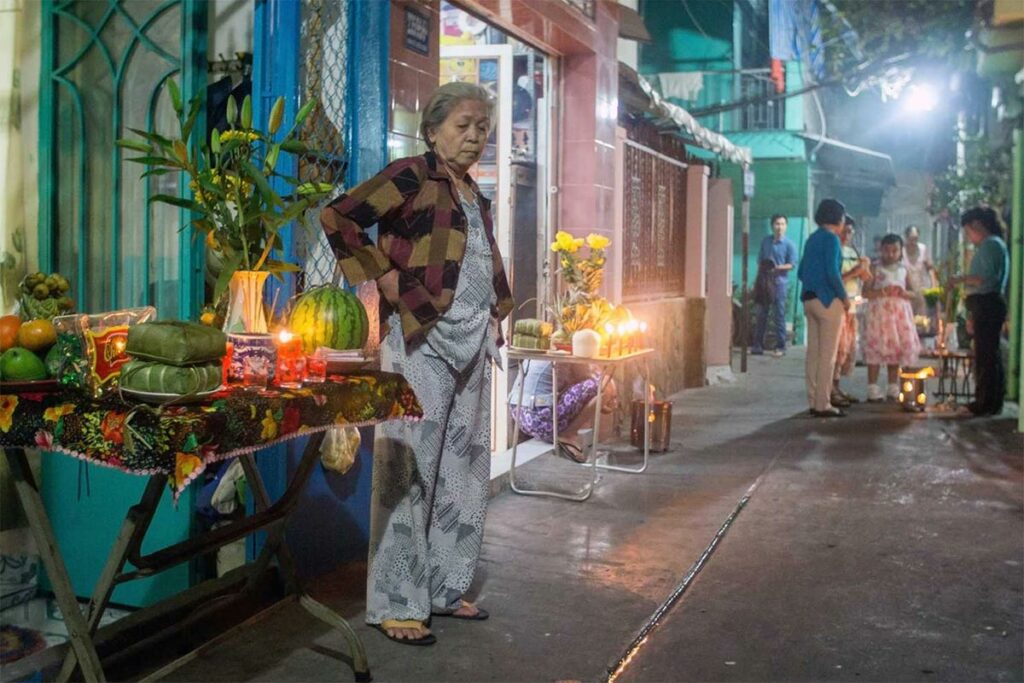
Ancestor worship holds a significant place in Vietnamese traditions, reflecting the deep reverence and respect for ancestors. It is a practice rooted in the belief that ancestors continue to play a vital role in the lives of their descendants. Vietnamese people often pay homage to their ancestors through rituals, offerings, and visits to ancestral graves, honoring their memory and seeking their guidance and protection.
3. Lunar New Year (Tet)
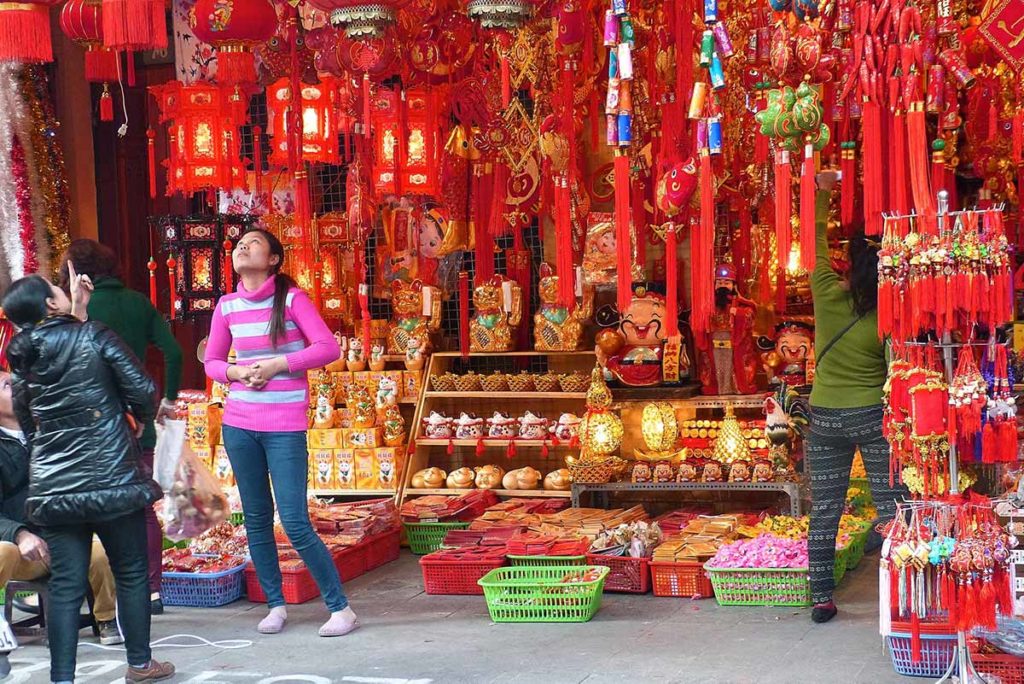
Lunar New Year, known as Tet Nguyen Dan in Vietnam, is the most important and widely celebrated festival in Vietnamese traditions. It marks the arrival of spring and the beginning of a new lunar year. During Tet, families come together, exchange wishes for a prosperous year, and participate in various customs and rituals, such as preparing special meals, visiting relatives, giving red envelopes with lucky money, and displaying colorful decorations.
4. Cuisine and Culinary
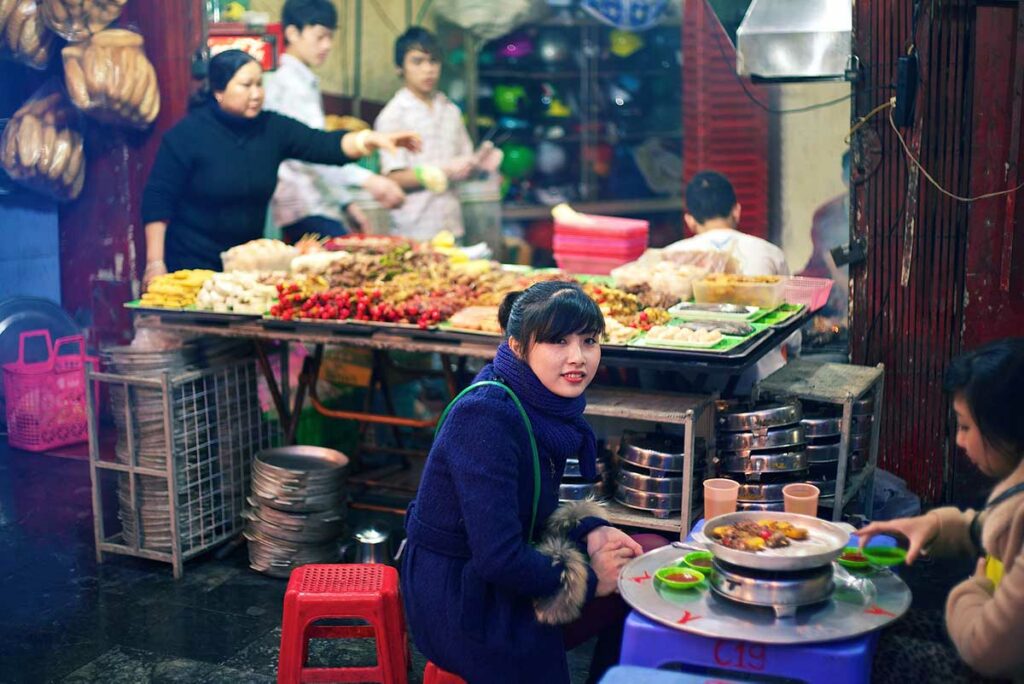
Cuisine and culinary traditions are integral to Vietnamese culture, and Vietnamese food is a source of immense pride for the people. With its rich flavors, fresh ingredients, and diverse regional variations, Vietnamese cuisine offers a delightful gastronomic experience. Each region in Vietnam has its own unique and special dishes, showcasing the country’s culinary diversity and reflecting the local flavors and traditions.
5. Traditional Arts and Crafts
Vietnam’s traditional arts and crafts are an integral part of its cultural heritage, showcasing the creativity and skill of its people. From intricate wood carving and lacquerware to vibrant silk weaving and pottery, these traditional crafts have been passed down through generations. They reflect Vietnam’s rich history, customs, and aesthetic sensibilities, making them an important aspect of the country’s cultural identity.
6. Traditional Clothing
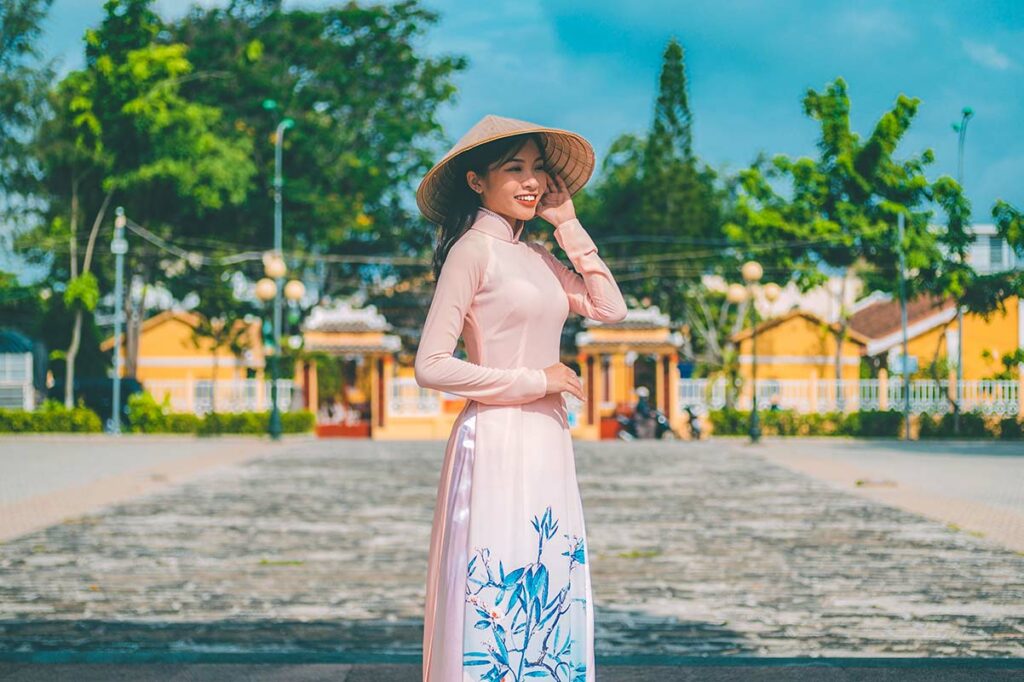
Traditional clothing in Vietnam is diverse and reflects the rich cultural heritage of the country. The iconic ao dai is the most recognized and widely worn traditional attire, known for its elegant and graceful design. However, Vietnam is home to numerous ethnic groups, each with their own distinctive traditional clothing, featuring vibrant colors, intricate patterns, and unique styles, showcasing the diversity and beauty of Vietnamese culture.
7. Literature and Folklore
Highlight prominent Vietnamese literary works, such as “Tale of Kieu” by Nguyen Du, and delve into traditional folklore, legends, and mythical creatures deeply ingrained in Vietnamese culture.
8. Vietnamese Language
Vietnamese literature and folklore are rich with legends and mythical creatures. These stories are passed down through generations and reflect the cultural beliefs and values of the Vietnamese people. From tales of dragons and fairies to legendary heroes and mystical creatures, Vietnamese literature and folklore provide a glimpse into the enchanting world of Vietnamese mythology and imagination.
9. Architecture and Heritage Sites
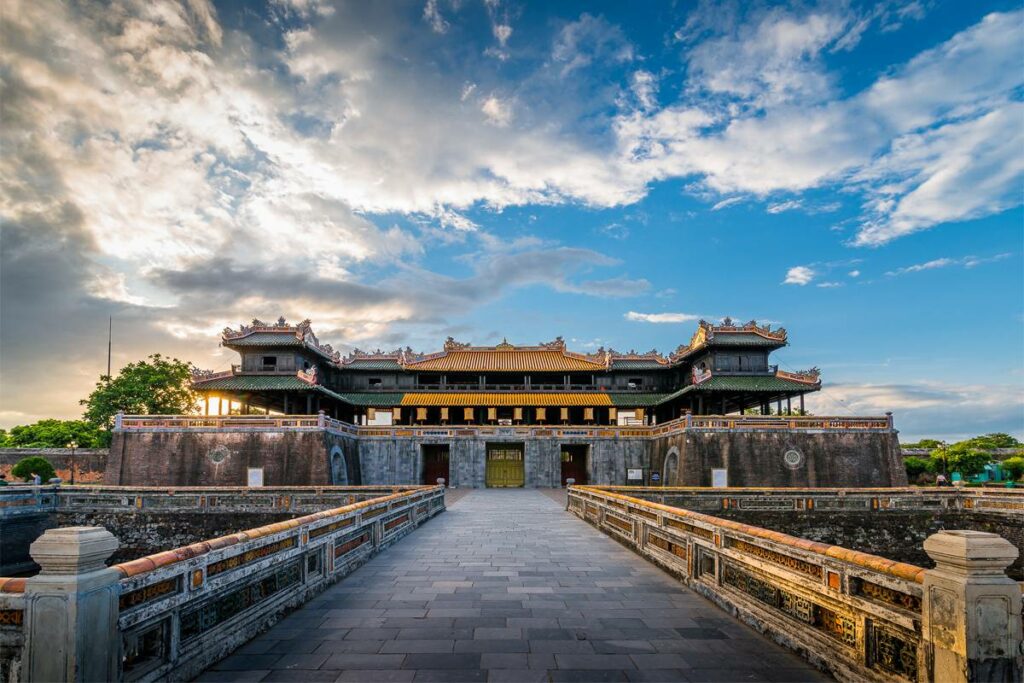
From ancient temples and pagodas to historic citadels and imperial palaces, these structures showcase the unique architectural styles and craftsmanship of Vietnam. Exploring these sites allows you to immerse yourself in the country’s history, admire the intricate designs, and gain a deeper understanding of Vietnamese culture and traditions.
10. Modern Vietnamese Culture
Modern Vietnamese culture is a vibrant blend of traditional values and contemporary influences. With a booming economy and increasing global connections, Vietnam has embraced elements of Western culture while preserving its own rich heritage. From fashion and music to cuisine and technology, modern Vietnamese culture reflects a dynamic and evolving society.
11. Vietnamese Sport Culture
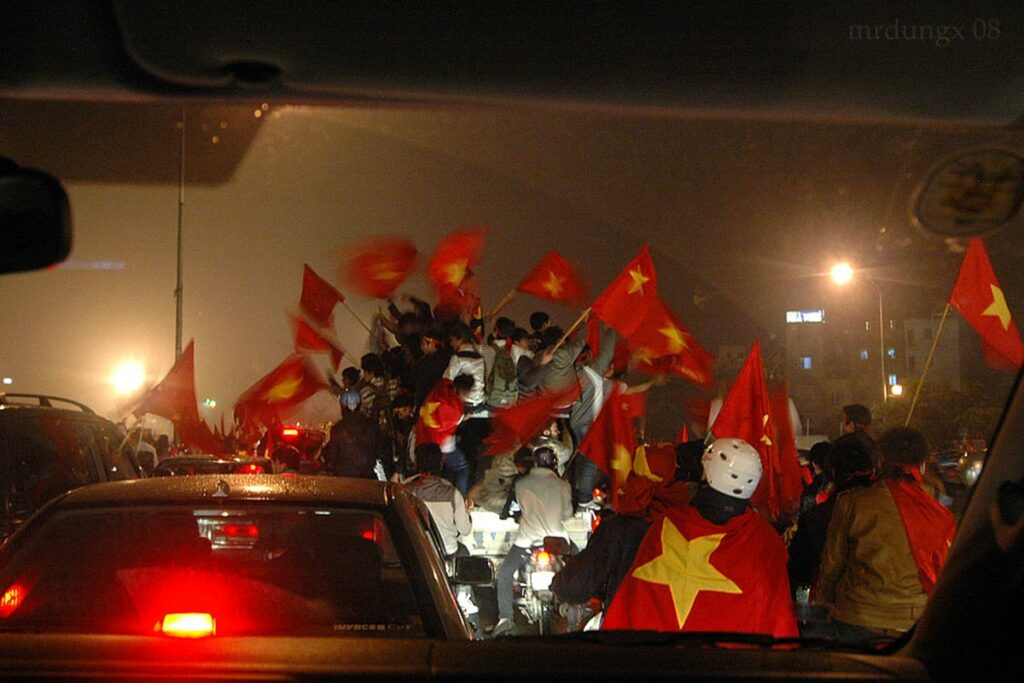
Vietnamese sport culture is fueled by a passion for football, with the sport being widely loved and followed across the country. In the early mornings and evenings, the streets come alive with people practicing tai chi and engaging in communal dancing. Additionally, table tennis, volleyball, and martial arts are also popular sports that contribute to the active and diverse sporting scene in Vietnam.
12. Communal Dining
Communal dining is an integral part of Vietnamese culture and traditions, emphasizing the importance of family and community bonds. It involves sharing meals together, often with dishes placed at the center of the table for everyone to enjoy. This practice fosters a sense of unity, togetherness, and hospitality, reflecting the values and social dynamics of Vietnamese society.
13. Drinking beer and wine
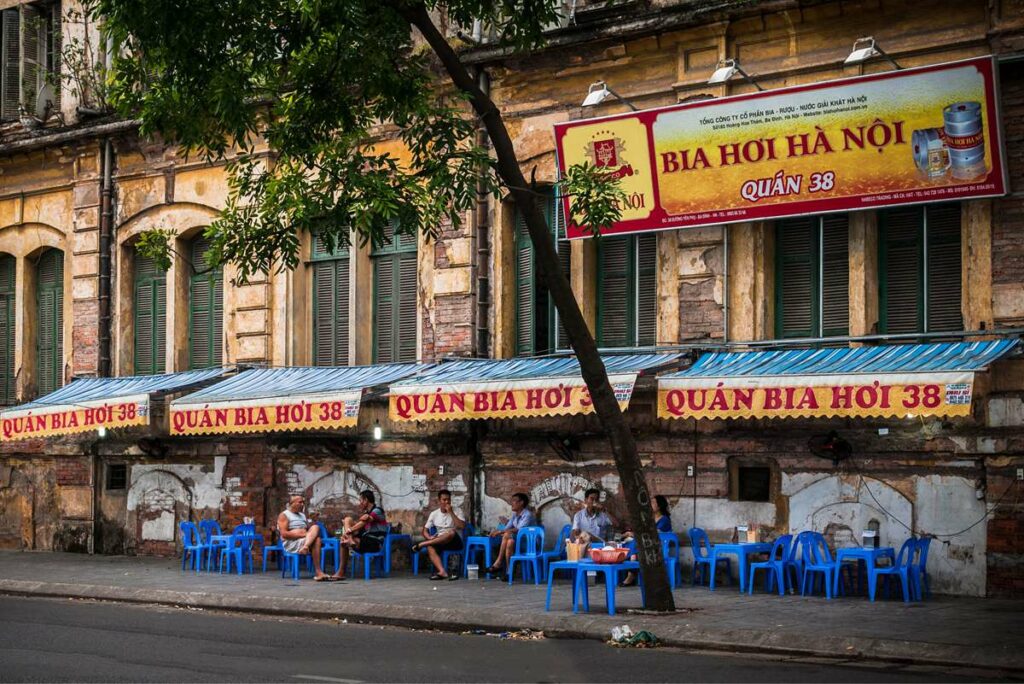
The drinking culture in Vietnam is huge and revolves around beer and rice wine, with both playing significant roles in social gatherings and business interactions. Beer is a popular choice, often enjoyed in casual settings among friends and colleagues. Rice wine, known as “ruou,” is also commonly consumed during special occasions and business meetings, where it is seen as a way to establish connections and build relationships.
14. Community Spirit
Community spirit in Vietnam is strong and emphasizes the importance of taking care of one another. People engage in acts of mutual support, such as trading goods from their gardens or helping clean the streets together. Socializing and gathering for drinks are common, providing opportunities to bond and share stories about the happenings in the community. And also a lot of gossip what is happening in their community.
15. Traditional Festivals

Traditional festivals in Vietnam are vibrant celebrations that showcase the country’s rich cultural heritage. These festivals often revolve around historical events, folk beliefs, and spiritual practices. During these festive occasions, the streets come alive with colorful decorations and Vietnamese flags, reflecting the deep sense of national pride among the people.
